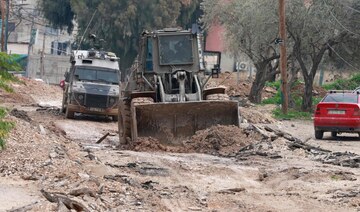ANKARA: Turkey’s confrontation with Greece in the east Mediterranean has intensified, following accusations from powerful EU member states that Ankara was “provoking” Brussels with its acts.
Its decision to resend its vessel, Oruc Reis, to contested waters off Greek islands to resume gas exploration has infuriated the EU, and the bloc’s leaders discussed the crisis on Friday.
“The European Council urges Turkey to reverse these actions and work for the easing of tensions in a consistent and sustained manner,” a final meeting report said.
On Thursday, Turkey was given a week to reconsider its position and to return to dialogue before the EU decides on potential sanctions. These are expected to be deferred to its December summit.
“Turkey remains consistent in its aggressive behavior,” Greek Prime Minister Kyriakos Mitsotakis said on Thursday at the opening of the EU Summit in Brussels.
Opinion
This section contains relevant reference points, placed in (Opinion field)
Charles Ellinas, a senior fellow at the Atlantic Council, said that Turkish President Recep Tayyip Erdogan had missed a good opportunity by sending back the Oruc Reis.
“By doing so he snapped the EU and particularly Germany that put so much into bringing Greece and Turkey back from confrontation into discussions,” he told Arab News, saying that he did not expect the EU to go much further for the time being.
“They will still give Ankara time, possibly to the start of December, to return to the original plans and commence discussions with Greece. This is the preferred way forward by the EU but, if aggressive actions continue beyond that, then the EU will be forced to act.”
He said that Greece would not be drawn into a naval confrontation but would pursue all other avenues to resist Turkey's actions, and that only negotiations could lead to a resolution. But it was unclear how serious Erdogan was in wanting a resolution or if he was determined to stick to his guns for domestic political reasons.
“Especially as seismic surveys for hydrocarbons are nothing but an excuse,” Ellinas added. “Not only (as) these cannot take place effectively with so many warships around the Oruc Reis, but the likelihood of finding hydrocarbons is very small.”
Using maritime disputes in the east Mediterranean as leverage may be a strategy for the Turkish government to bolster domestic support ahead of any snap elections amid a worsening economy and the COVID-19 pandemic, regardless of what impact these actions may have on EU relations.
“With regard to the return of the Oruc Reis to disputed waters even Germany, who has adopted a more balanced and moderate view with regard to the conflict between Turkey and Greece, has the perception that Turkey has duped the EU on this issue,” Gallia Lindenstrauss, senior research fellow at the Institute for National Security Studies in Israel, told Arab News.
Germany has tried to broker a de-escalation in the eastern Mediteranean, but Turkey’s recently increasing assertiveness in the region has weakened support for any diplomatic initiative.
Lindenstrauss believed that Ankara wanted to negotiate.
“But it wants to come to the negotiations from a position of strength. Clearly its provocative actions in different arenas are meant to give it such an advantage, but it is not clear that indeed Turkey feels strengthened enough at this point to stop the escalation. The Turkish actions are causing a strong backlash that will also at some point force the Turkish side to moderate its actions.”
Turkey has also been aggravating its relations with other Western partners, namely the US. On Friday it fired a missile to test out a Russian-made air defense system.


























